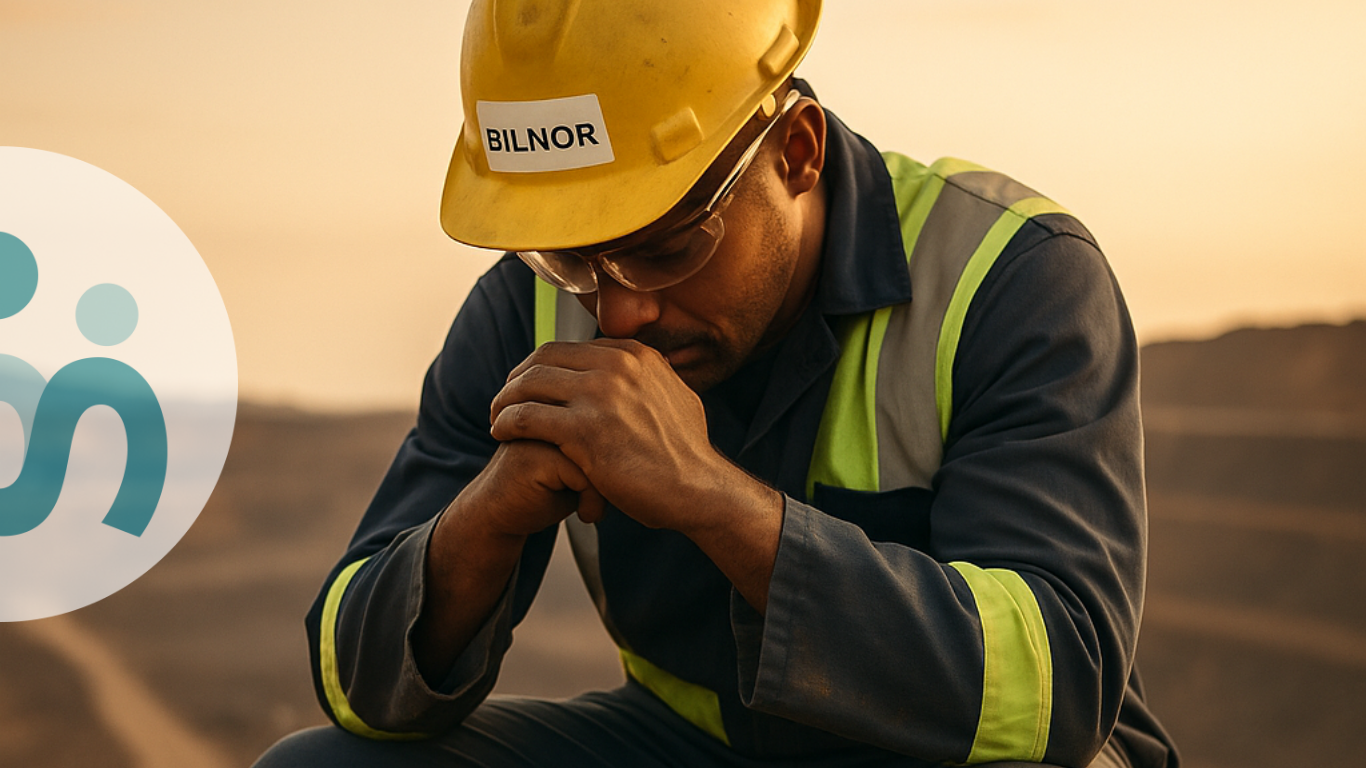
Surviving the On-Call Mindset: Rest, Recovery and Mental Reset for Contractors
After last week’s article, “Burnout in Mining and Engineering” it’s worth digging deeper into one of the toughest parts of contractor life: living in a permanent state of readiness.
Contractors in the mining sector often live in a constant “on-call” state. You’re always ready, always alert, primed for the next task, standby for call-outs or shift changes. That mindset might boost your responsiveness, but it also heightens risk of fatigue and burnout. Here’s how to build small but powerful habits to reset, recover and protect your mental health in the rotational/contract environment.
The fatigue & mental-health risk for contractors
In mining, long shifts, shift-work, remote camp rosters and high-intensity tasks combine to create a perfect storm of fatigue risk. The Mine Health & Safety Council’s guidelines for fatigue management identify sleep disruption, high workloads, night shifts and cumulative tiredness as key hazards.
A literature review found that miners face elevated anxiety, stress and mental-health issues because of their work environment.
For contract staff carrying the “always ready” load, the risk is magnified: you may lack consistent rest, you may travel long distances after shifts, and you may carry extra uncertainty about your next call-out.

The first recovery habit: a clear “shutdown” routine at the end of shift or standby. Think of this as giving your mind a signal: “Work is done, now reset.”
This could include:
- A short decompression ritual: 5–10 minutes of stretching or focused breathing.
- Writing down any remaining thoughts or tasks so they’re not buzzing in your mind when you try to sleep.
- Changing out of work gear into comfortable clothes to mark the transition.
By ritualising the transition from “work mode” to “off-mode” you reduce residual mental activation and support rest.
Sleep hygiene and micro-breaks: your body’s reset button
Given the shift patterns and remote travel in mining, sleep becomes your critical recovery currency.
Best practices:
- Aim for a dark, cool sleep environment — this helps regulate your circadian rhythm. Disrupted rhythms are a major fatigue driver in mining.
- Prioritise regular bed/wake times where possible, even on break days.
- Use “micro-breaks” during standby or low activity periods: even 10–15 minutes of quiet rest (eyes closed, disconnecting mentally) can reduce cumulative fatigue.
- Minimise caffeine or heavy food close to bedtime; avoid screens for 30 minutes before sleep to let your brain unwind.

Psychological switch-off: tough but necessary
Contract roles often blur boundaries: you stay “on call”, mobile, aware of inbound messages, ready to mobilise. That keeps adrenaline going—even in your “off” time.
To combat this:
- Set defined periods when you switch off work notifications (where possible) and allow yourself to focus on non-work life.
- Use mental anchoring: pick a non-work activity or location that signals the off phase (a walk, a hobby, being with family or friends).
- Engage in a low-stimulus downtime before bed: reading a novel, listening to gentle music, or meditative breathing. This helps drop your alertness levels and supports deeper recovery.
Burn-out traps to watch out for in rotational/contractor mining roles
- Extended consecutive shifts or night-runs can lead to cumulative fatigue which degrades both safety and wellbeing.
- Travel after shifts, long commutes or camp-living away from family add extra stress loads.
- The “always ready” mindset means you might not allow yourself full downtime; this non-stop posture prevents real recovery.
- Isolation or restricted social interaction (common in remote camp life) can amplify mental-health risks.
Making it work day to day: 5 quick tips
- End each shift with a 5-minute ritual: breathe, stretch, log thoughts, change gear.
- On standby or in camp, schedule a 10-minute “micro-break” mid-day: close eyes, away from screens, let thoughts float.
- Create a “sleep sanctuary”: dark curtains, cool room, no digital intrusion for 30 minutes before bed.
- Block at least one period per day where you turn off work-related alerts and focus on something non-work.
- Check-in weekly with a peer or friend: “How am I really feeling?” Use this to detect early signs of stress, fatigue or mental overload.

Contractor wellness isn’t about one big action—it’s about consistent small habits that protect your physical and psychological resilience. In a mining environment where demand is high, conditions often tough and readiness is constant, the recovery routines above will help you stay safe, alert and mentally ready for the long-haul.


